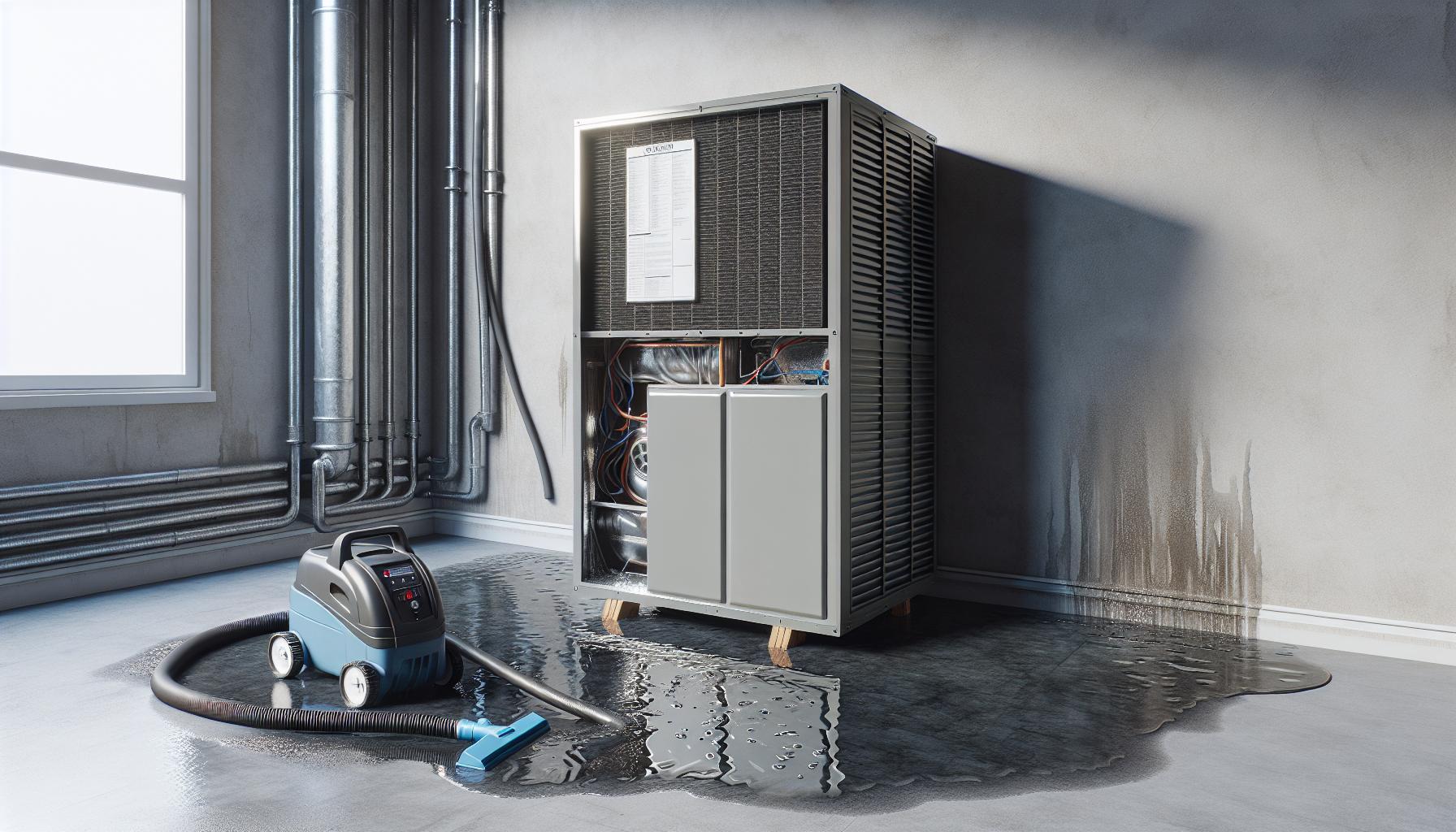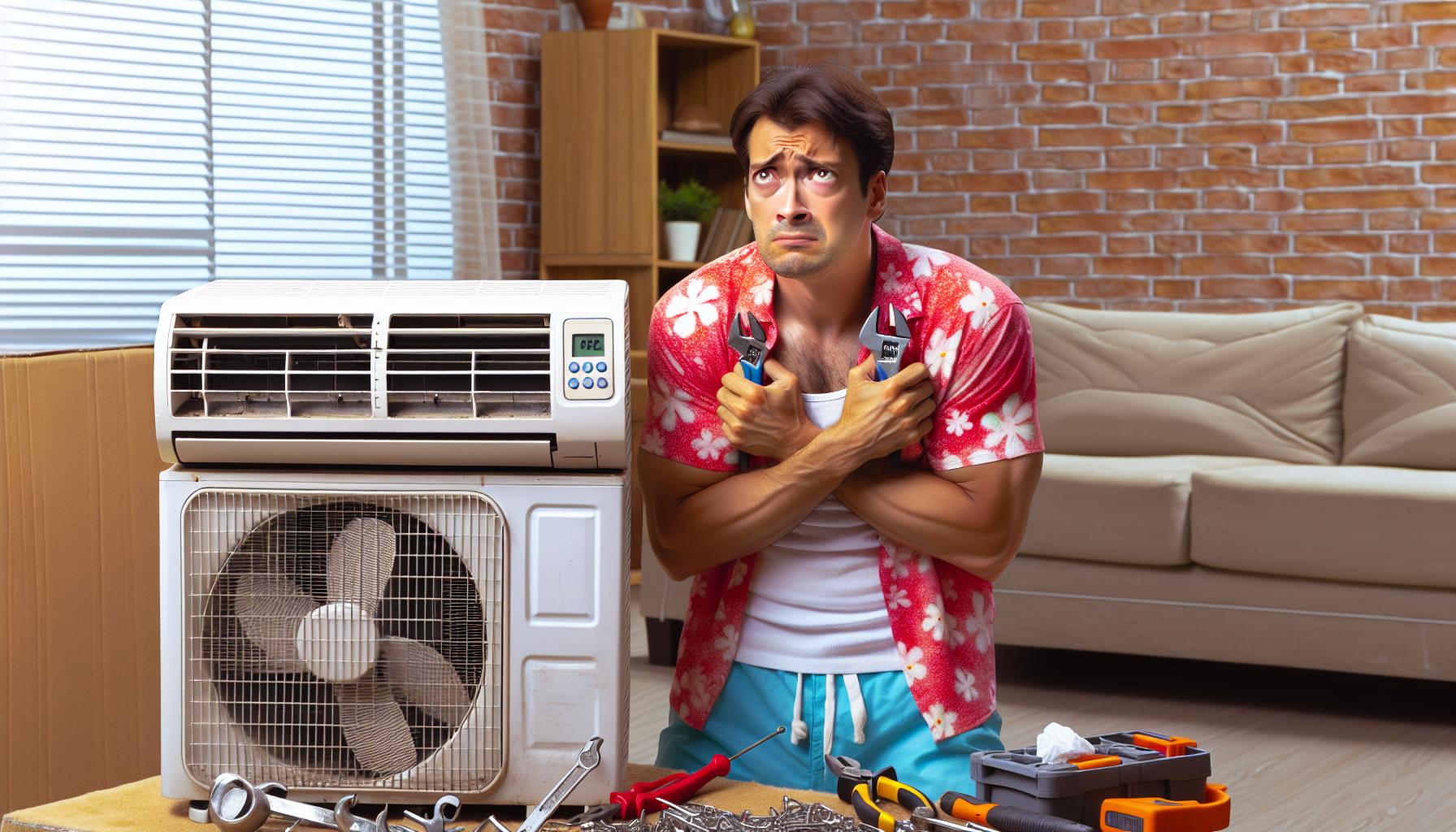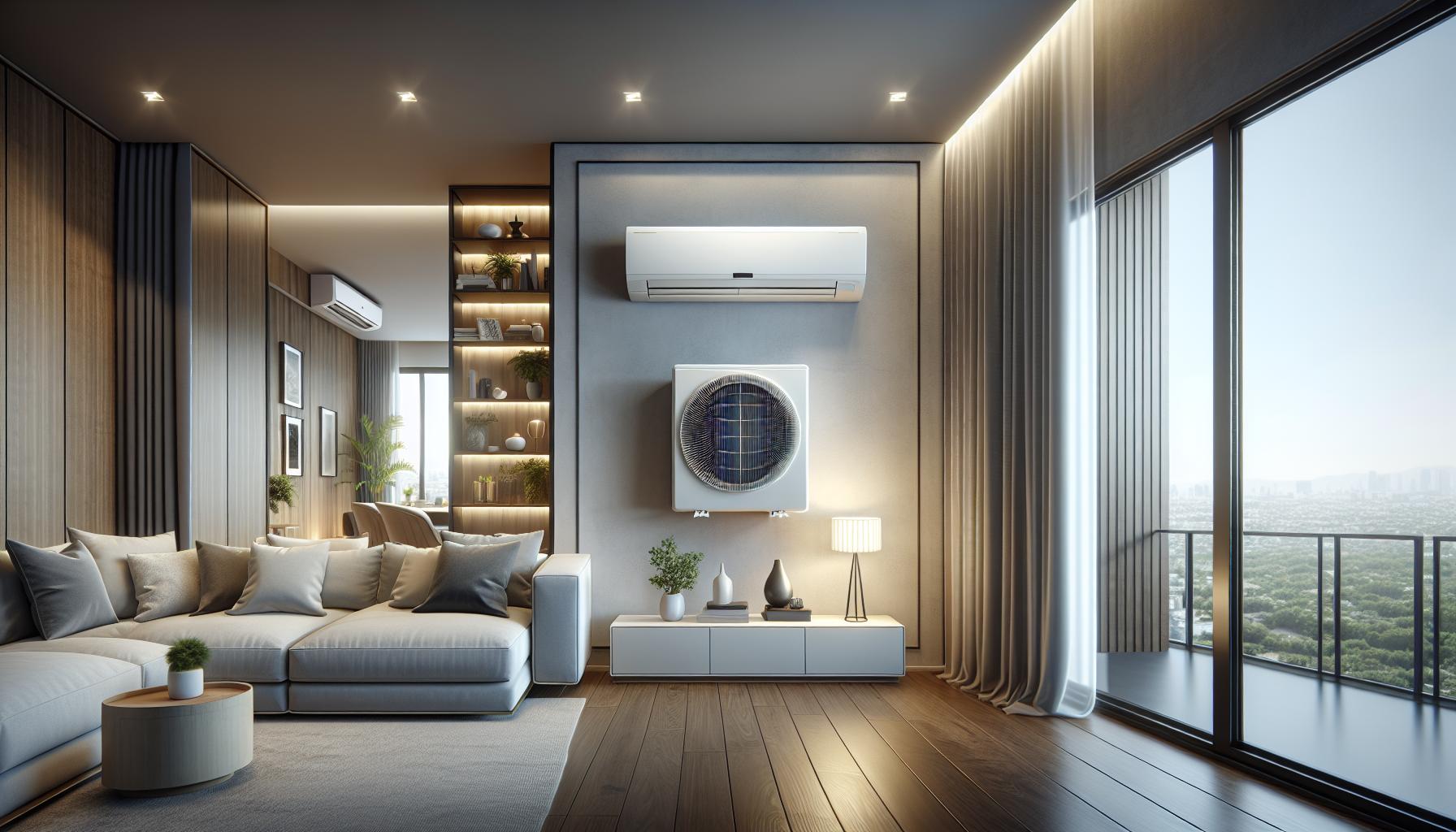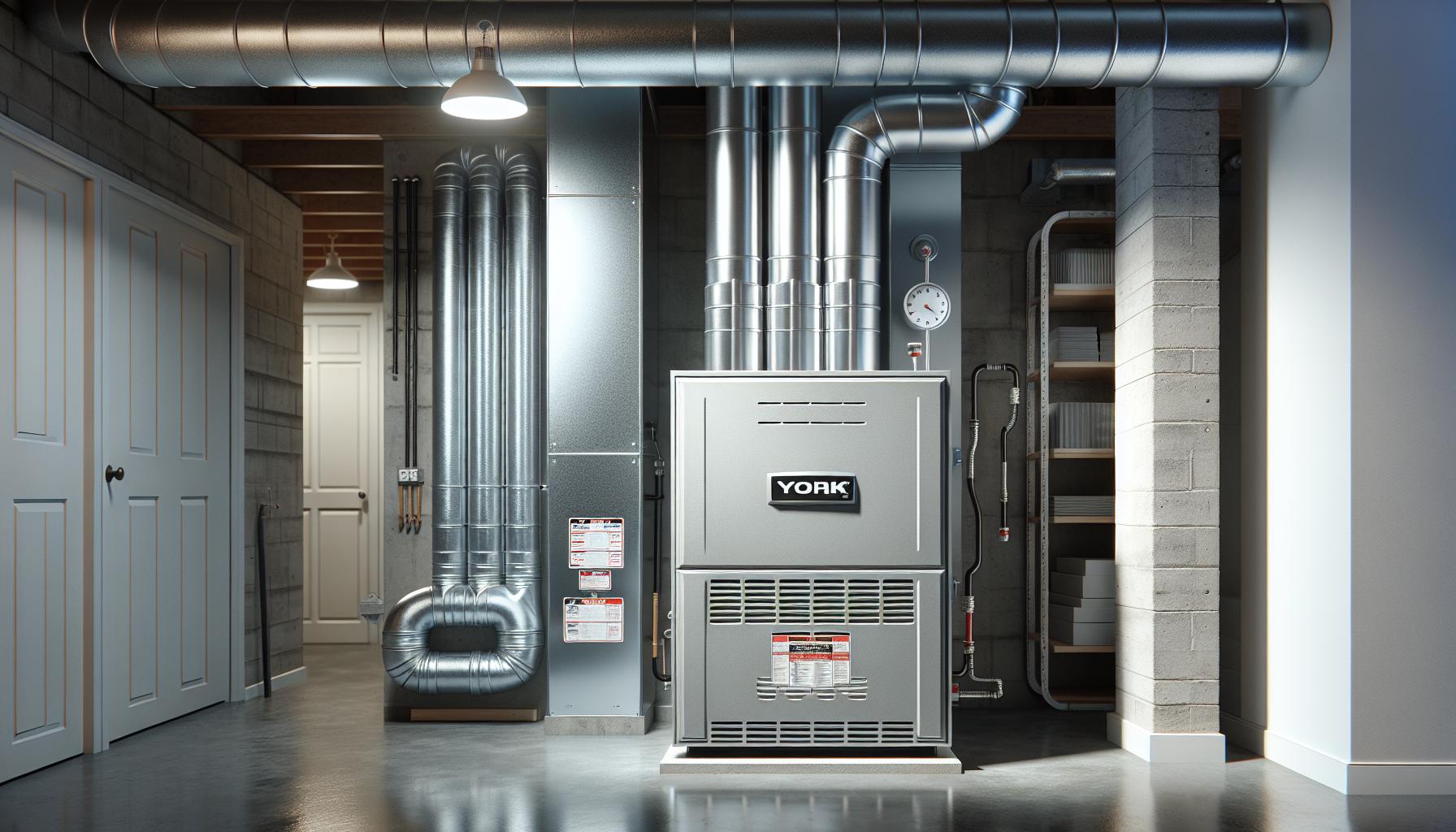A leaking air handler can quickly turn from a minor inconvenience into a major headache. Whether you’re a homeowner or a facilities manager, understanding why your air handler leaks and how to address it is crucial. This article delves into the common causes of air handler leaks, the potential risks they pose, and effective solutions to keep your system running smoothly.
You’ll discover how issues like clogged drain lines, frozen evaporator coils, and improper installation contribute to leaks. We’ll also share practical tips for regular maintenance and early detection to prevent costly repairs down the line. By the end of this read, you’ll be equipped with the knowledge to tackle air handler leaks confidently, ensuring your HVAC system operates efficiently and safely.
Common Causes Of Air Handler Leaking
Understanding why your air handler is leaking can help you address the issue promptly. Here are the most common causes and their solutions.
Clogged Condensate Drain Line
A clogged condensate drain line often leads to air handler leaks. Sludge, dirt, debris, or mould can block the drain line, causing water to back up and overflow. Regular maintenance is key. Use a wet/dry vacuum to clear blockages and add a mix of warm water and white vinegar to prevent future clogs.
Frozen Evaporator Coil
A frozen evaporator coil can cause leaks when it thaws. Restricted airflow, often due to dirty air filters, typically causes the coil to freeze. Ensuring proper airflow by regularly cleaning or replacing air filters can prevent this issue. Monitor your HVAC system for signs of restricted airflow.
Dirty Air Filters
Dirty air filters restrict airflow, leading to multiple issues, including frozen evaporator coils and subsequent leaks. Regularly checking and replacing your air filters improves airflow and prevents frozen coils. Aim to inspect filters monthly and replace them as needed to maintain your system’s efficiency.
Identifying Signs Of An Air Handler Leak
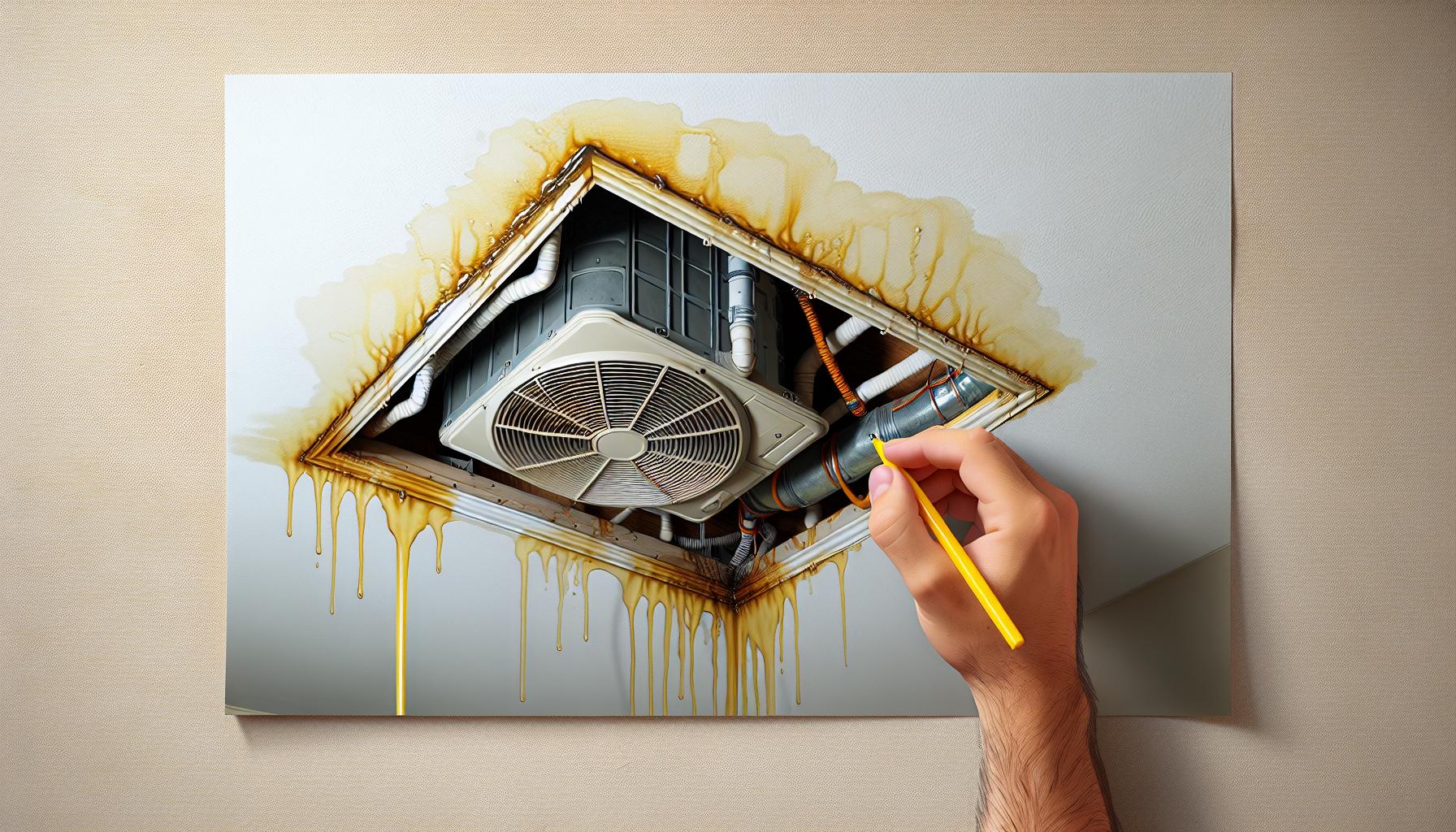
Detecting an air handler leak early can prevent significant damage and costly repairs. Here are some key signs to watch for.
Water Stains
Water stains on walls, floors, or ceilings near the air handler suggest a leak. These stains, often brown or yellow, indicate prolonged water exposure and potential structural damage.
Musty Odour
A musty or mouldy smell around the air handler is a strong sign of a leak. This odour, caused by moisture accumulation, promotes mould and mildew growth. Inspect the drain line and condensate pan regularly to prevent such issues.
Increased Humidity
Unexpectedly high indoor humidity levels can signal an air handler leak. This leak disrupts the HVAC system’s ability to dehumidify, making your home feel clammy. Monitor indoor humidity to catch leaks early.
Preventing Air Handler Leaks
Preventing air handler leaks ensures your HVAC system runs efficiently and avoids costly repairs. Focus on regular maintenance, cleaning or replacing filters, and ensuring proper insulation.
Regular Maintenance
Regular maintenance keeps your air handler leak-free. Inspect the condensate drain line to ensure it’s clean and free of clogs. Engage a professional HVAC technician for comprehensive inspections and to diagnose any issues. Carry out scheduled maintenance programs that include equipment checks, filter cleaning, and drain line inspections.
Cleaning Or Replacing Filters
Cleaning or replacing filters is vital for preventing leaks in your air handler. Dirty filters restrict airflow, causing evaporator coils to freeze and lead to leaks. Replace filters every 1-3 months depending on usage and manufacturer recommendations. Clean reusable filters monthly to maintain proper airflow and system efficiency.
Ensuring Proper Insulation
Proper insulation around your air handler prevents condensation and leaks. Insulate ductwork to prevent temperature differences that cause condensation. Inspect insulation regularly for any damage or wear. Replace or repair insulation as needed to maintain efficiency and protect your air handler from leaks.
Steps To Take When You Discover A Leak
When an air handler leaks, immediate action is crucial to prevent further damage and maintain HVAC efficiency. Follow these steps for a systematic approach.
Turn Off The System
Turn off the air conditioner and unplug it from the power source. This ensures safety and prevents additional damage during inspection and repair.
Remove The Water
Locate the leak source and remove any accumulated water. Drain the condensate pan and clear the area around the air handler to prevent further damage and moisture buildup.
Inspect And Repair
Inspect the air handler to identify the leak source. Common causes include clogged condensate drain lines, which may have sludge, dirt, or debris. Clean the drain line to restore proper function.
Professional Repair Vs. DIY
Addressing an air handler leak requires careful consideration of safety and complexity. We’ll examine when to call a professional and what DIY fixes you can attempt.
When To Call A Professional
Leaks in an air handler can pose significant risks, such as electrical issues and fire hazards. Involving a professional ensures safety and proper handling of complex components like refrigerant lines and electrical connections.
DIY Fixes
For minor issues, you can attempt some DIY fixes. Clear clogged condensate drain lines using a wet/dry vacuum or replace dirty air filters to improve airflow. Always prioritise safety and consult a professional if unsure.
Conclusion
Addressing air handler leaks promptly is crucial to maintaining your HVAC system’s efficiency and preventing costly damages. Regular maintenance, including inspecting and cleaning condensate drain lines and replacing filters, is essential. If you suspect a leak, take immediate action by turning off the system and safely removing any water. Simple DIY fixes can often resolve minor issues, but don’t hesitate to call a professional for more complex problems. Staying proactive with maintenance and early detection will ensure your air handler operates smoothly, keeping your home or facility comfortable and safe.
